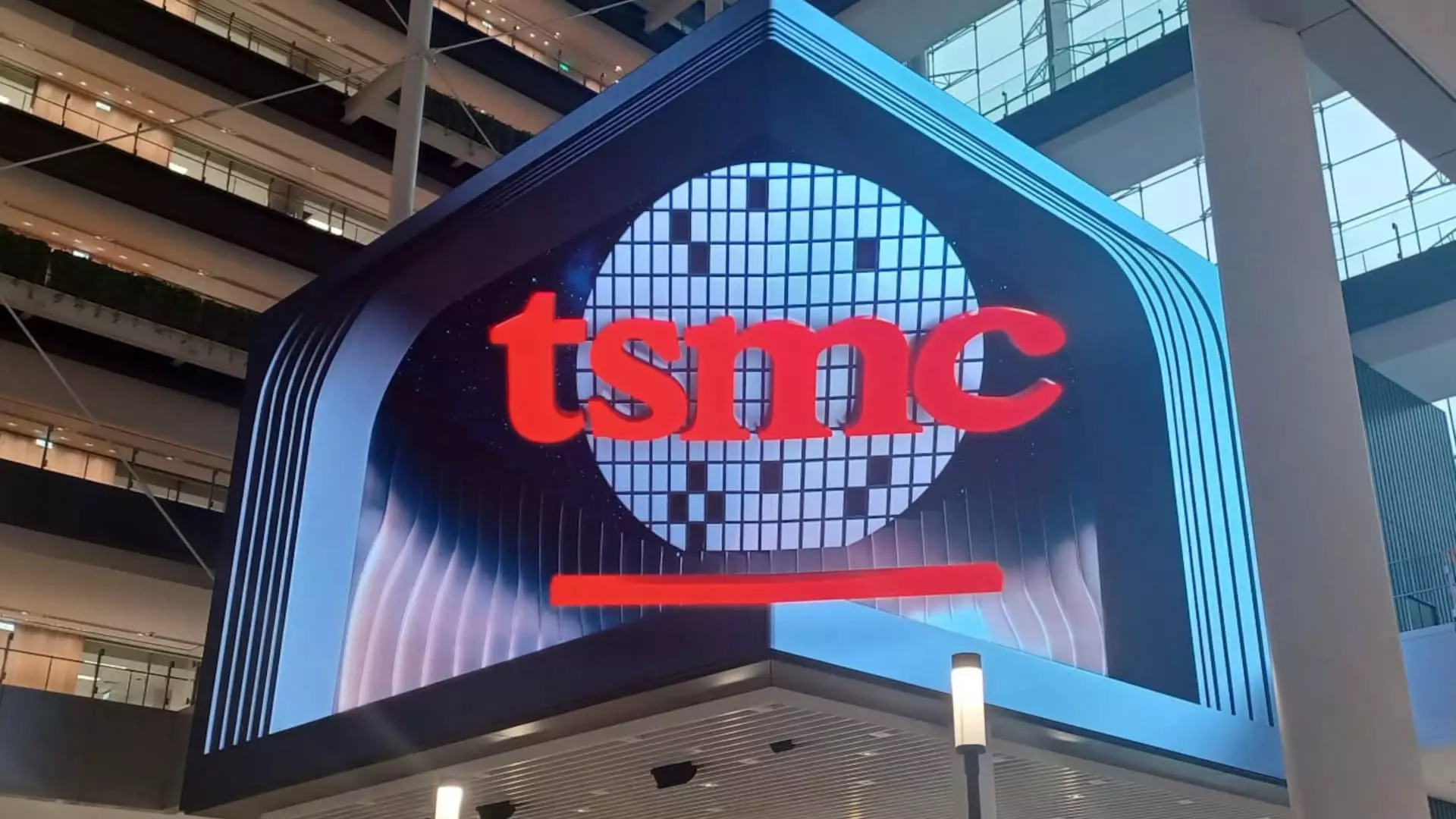Taiwan Semiconductor Manufacturing Company (TSMC) has once again solidified its position as a leader in the global semiconductor industry with its impressive fourth-quarter performance, surpassing market expectations. The company reported a staggering net revenue of 868.46 billion New Taiwan dollars (approximately $26.36 billion), which exceeded the anticipated 850.08 billion New Taiwan dollars. Additionally, TSMC’s net income reached 374.68 billion New Taiwan dollars, outpacing predictions of 366.61 billion New Taiwan dollars. This remarkable achievement represents a year-on-year profit increase of 57% and a revenue growth of 38.8%, indicating an unparalleled financial performance for the company.
The increased demand for sophisticated chips tied to artificial intelligence (AI) applications has played a critical role in driving TSMC’s financial success. As the world’s foremost contract chip manufacturer, TSMC produces cutting-edge processors for high-profile clients, including industry giants like Nvidia and Apple. This strategic positioning enables the company to capitalize on the burgeoning megatrend favoring AI technologies.
A significant contributor to TSMC’s revenue was its high-performance computing (HPC) division, which encompasses AI and 5G capabilities. This segment accounted for an astounding 53% of the company’s total revenue in the fourth quarter, demonstrating its growing importance to TSMC’s overall financial health. The HPC revenue also showed a robust improvement of 19% compared to the previous quarter, reflecting the escalating demand for AI-focused hardware.
Industry analysts, such as Brady Wang from Counterpoint Research, noted the unexpected surge in demand for AI chips during the fourth quarter. The urgency for advanced semiconductors is further bolstered by the popularity of AI-driven features in products like Apple’s latest iPhone 16. This trend indicates that consumer electronics continue to play a significant role in TSMC’s revenue streams.
The year 2024 marked a monumental point for TSMC, achieving an all-time high in annual revenue of 2.9 trillion New Taiwan dollars, breaking records since the company’s public listing in 1994. The chief financial officer, Wendell Huang, elaborated on the continued robust demand from customers aligned with AI applications throughout 2024. He projected that revenue from AI accelerator products would account for a substantial portion of TSMC’s total revenue, indicating a prevailing trend that could reshape the semiconductor landscape.
Moreover, the projections underscore a forecasted doubling of revenue from AI accelerators in 2025, driven by relentless market demand for AI applications. This perspective positions TSMC strategically in the marketplace, recording a doubling effect of opportunities to cater to an array of emerging technologies.
Despite the glowing outlook, TSMC is not without its challenges. The company may contend with significant hurdles arising from potential U.S. restrictions on advanced semiconductor shipments to China. Additionally, the uncertain trade policies under incoming President Donald Trump could have ramifications for TSMC’s operations, particularly relating to tariffs and market access. The company’s leadership has signaled a preference for maintaining a low profile in political arenas, explicitly opting out of high-profile events such as Trump’s inauguration.
Nonetheless, despite these possible obstacles, TSMC remains optimistic about its future. Analysts like Wang predict continued prosperity in 2025, fueled by sustained demand from AI applications that are diversifying in both nature and quantity.
In acknowledgment of TSMC’s strong financial performance, the company’s shares on the Taiwan Stock Exchange saw an impressive increase of 81% throughout 2024. This momentum carried on into trading sessions, reflecting broader market positivity towards semiconductor companies; European firms such as ASML and ASM International saw stock price increases as well.
As TSMC navigates a pathway marked by both tremendous growth opportunities and geopolitical challenges, its strategic adaptability will be paramount. The synergy between innovative product offerings and global market needs will continue to define TSMC’s trajectory within the semiconductor industry in the coming years.

